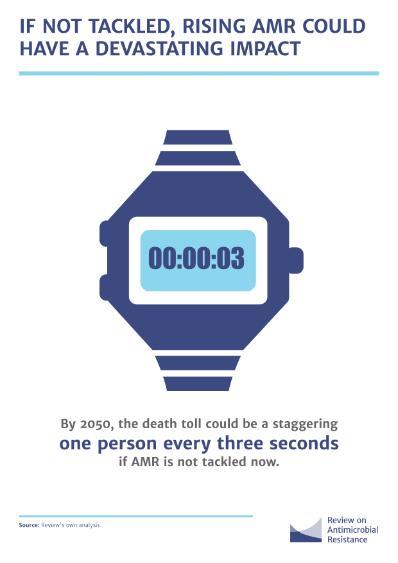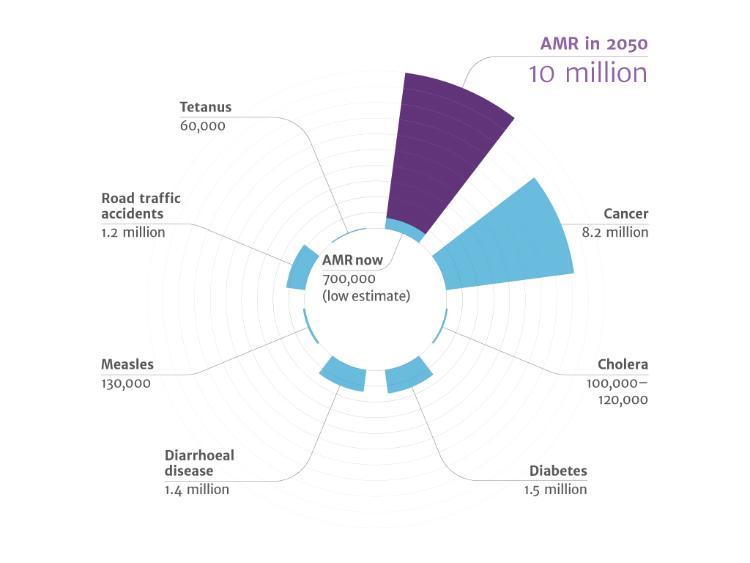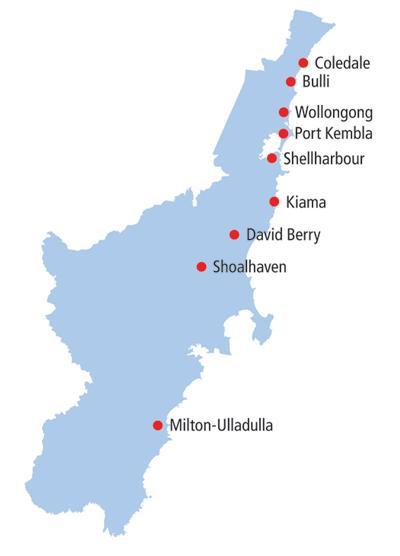Antimicrobial Resistance
Tackling the challenge of antimicrobial resistance, by developing and testing interventions to stop, or at the very least slow down, rates of resistance.
Tackling the challenge of antimicrobial resistance, by developing and testing interventions to stop, or at the very least slow down, rates of resistance.
"Antimicrobial resistance (AMR) is one of the biggest threats to human and animal health today."– Australian Government (Department of Health, 2017)
Antimicrobial resistance (AMR) occurs when microorganisms such as bacteria, viruses, fungi and parasites become resistant to medications that are used to kill them, such as antibiotics, making them ineffective.
Whilst AMR occurs naturally to a degree, improper use of antibiotics has accelerated rates of resistance. This includes:

"We have reached a critical point and must act now on a global scale to slow down antimicrobial resistance."– Professor Dame Sally Davies, UK Chief Medical Officer, 2014
AMR is a serious problem that can affect anyone.
AMR is a complex problem that affects all of society and is driven by many interconnected factors. Coordinated action is required to minimise the emergence and spread of AMR, including:
Everybody can play a role in helping society win the fight against AMR. Check out our resources (insert link to resources) to find out how you can help.

"Governments around the world are beginning to pay attention to a problem so serious (antimicrobial resistance) that it threatens the achievements of modern medicine."
– World Health Organisation, 2014
To build a platform to support the Illawarra Shoalhaven region to become a testbed for health interventions.
To use the Illawarra Shoalhaven region as a microcosm of the broader Australian community to characterise antimicrobial resistance, and to provide evidence to drive policy and practice measures with national and global applicability.
To build a large longitudinal study across the Illawarra and Shoalhaven region which looks at all of the factors (food, animals, waste, genetics, microbiome etc) that are drivers for antimicrobial resistance and test interventions.
Phase 1. Gather data across the region to identify the drivers of antibiotic resistance
Phase 2. ‘Test drive’ interventions in a subset of the Illawarra Shoalhaven region
Phase 3. Conduct a larger scale whole of Illawarra Shoalhaven intervention
Phase 4. Roll out successful interventions on a national and international scale
Whilst there is significant Australian and global attention on Antimicrobial Resistance (AMR), there is presently no community based cohort study which characterises AMR and provides a test bed for holistic interventions to slowdown use of antibiotics and rates of AMR.
The deeper and holistic understanding of how to slow AMR rates developed through the Illawarra Cohort Study will create the ‘playbook’ for how to intervene in the war against AMR and slow down the use of antibiotics.
The Illawarra Shoalhaven region’s stable and diverse population base provides an excellent test bed for research into a new way to tackle AMR.
Not only does the Illawarra Shoalhaven boast regional, rural and metropolitan areas, it has a well-defined and contained coastal strip with a relatively stable population base. This provides an ideal population base to position itself as the “Framingham” of AMR, characterising all the factors that influence AMR and creating a test bed for interventions.
Image (right): Illawarra Shoalhaven Local Health District

The Wollongong Antimicrobial Resistance Research Alliance (WARRA) was co-founded in 2017 by University of Wollongong Professor’s Antoine van Oijen and Mitchell Byrne. WARRA brings together researchers from the University of Wollongong, local health authorities, clinicians, community stakeholders and industry partners, to develop new approaches to tackle AMR.
WARRA is proud to be comprised of a wide range of researchers and clinicians. WARRA has been established in connection with many great community partners who have enabled AMR research across the Illawarra Shoalhaven region. We would like to thank these community partners for their ongoing involvement and support.
Funding provided by the University of Wollongong, UOW Global Challenges.
